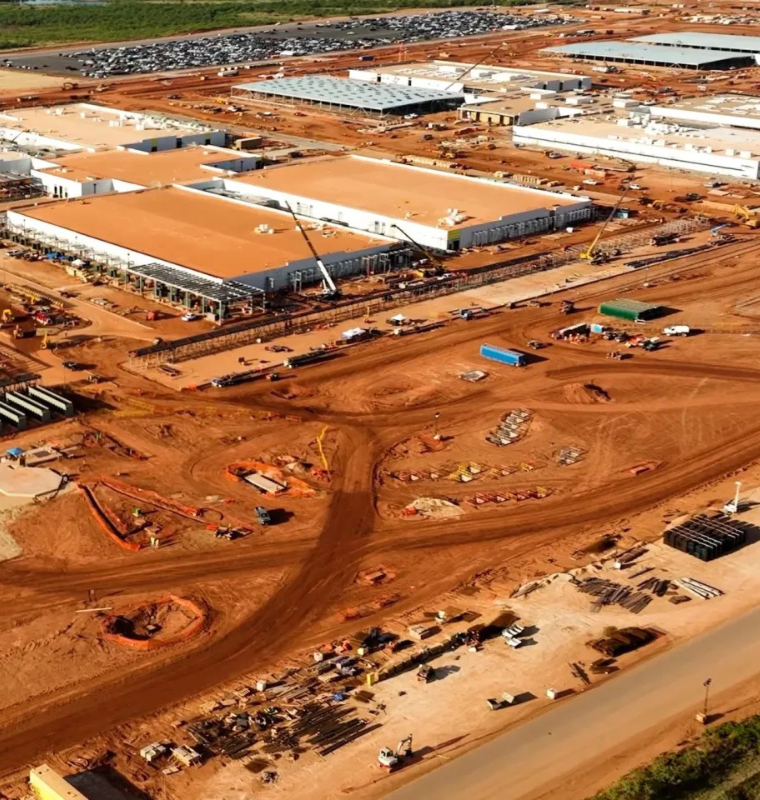China’s EV Sales Rebound as Affordable Models Drive Record Deliveries
China’s EV Sales Rebound as Affordable Models Drive Record Deliveries
By
Leah Rosenfeld
Last updated:
September 3, 2025
First Published:
September 3, 2025

Photo: South China Morning Post
China’s electric vehicle (EV) market staged a strong recovery in August after a summer slump triggered by a price war, with several automakers posting record-breaking deliveries thanks to newly launched, competitively priced models.
BYD Leads with Strong Double-Digit Growth
Industry giant BYD continued to dominate the Chinese EV landscape, delivering 371,501 units in August, a 22% increase year over year. The company’s growth underscores its ability to maintain momentum even as competition intensifies, solidifying its lead in the global EV race.
Nio Breaks Records with Onvo Sub-Brand Boost
Nio posted a record 31,305 deliveries in August, bouncing back after a modest dip in July. Much of this success came from its new sub-brand Onvo, which delivered 16,434 vehicles, up sharply from 5,976 in July.
The Onvo lineup includes the L90 SUV, launched on August 1 in a six-seater version, with the seven-seater expected to hit the market by late September. Nio also announced the upcoming delivery of its flagship ES8 SUV, priced from 308,800 yuan ($43,305), further lifting investor sentiment as shares climbed on the news.
Leapmotor Surges with New B01 Model
Leapmotor set an all-time monthly record with 57,066 deliveries, an 88% year-over-year increase, surpassing its July total of 50,129.
The surge was fueled by the new B01 model, launched on July 24, which sold more than 10,000 units in its first month. Additional momentum came from a fresh color release of the popular B10 model. The August performance marked Leapmotor’s strongest monthly gain since March, when deliveries jumped by nearly 50%.
Xpeng Hits New High with Budget-Friendly P7
Xpeng also broke records, reporting 37,709 deliveries in August, thanks to the late-August launch of its new P7 model. Starting at 219,800 yuan, the P7 is one of the most affordable EVs in China’s market, positioning Xpeng as a strong competitor in the entry-level and mid-range segments.
Xiaomi Holds Steady, Zeekr Shows Modest Growth
Smartphone-giant-turned-EV-maker Xiaomi maintained its delivery pace, reporting more than 30,000 units sold in August, though it did not provide exact figures. The performance followed a boost in July driven by the rollout of its YU7 SUV.
Zeekr, owned by Geely, recorded 17,626 deliveries, a slight increase from 16,977 in July, signaling stable but modest growth compared to rivals posting record highs.
Li Auto Faces Decline and Backlash
In contrast to its peers, Li Auto registered a third consecutive monthly decline with 28,529 deliveries, down from 30,731 in July. This decline came despite the late July launch of the competitively priced Li i8 model.
The company faced criticism after releasing a controversial video showing a collision test between the Li i8 and a Dongfeng Liuzhou truck, which many viewers deemed unfair. After initially defending the campaign, Li Auto later issued an apology, but the reputational damage may have contributed to weaker sales momentum.
Huawei-Backed Aito Sees Drop in Sales
The Huawei-backed Harmony Intelligent Mobility Alliance, which includes Aito, Chery, and Maextro, also reported lower deliveries. Combined sales fell to 44,579 units in August, compared to 47,752 in July, though no breakdown was provided for individual brands.
Outlook for China’s EV Market
August’s rebound highlights the importance of affordable, mass-market EVs in sustaining growth. With companies like Nio, Leapmotor, and Xpeng finding success by targeting price-sensitive buyers, the battle for market share is intensifying.
However, controversies like Li Auto’s marketing missteps and concerns about the long-term sustainability of aggressive pricing strategies raise questions about how far the price war can go before it undermines profitability.
For now, China’s EV sector remains the largest and most competitive in the world, and August’s results show that innovation and affordability continue to drive consumer demand.
Popular articles
Subscribe to unlock premium content
Why Consumers Buy Limited-Edition Fashion and Beauty Products

How K-Beauty Changed the Global Skincare Industry and Consumer Expectations

How Streetwear Became a Billion-Dollar Industry From Niche to Mainstream

Why Consumers Buy Limited-Edition Fashion and Beauty Products

How K-Beauty Changed the Global Skincare Industry and Consumer Expectations

Why Consumers Buy Limited-Edition Fashion and Beauty Products









